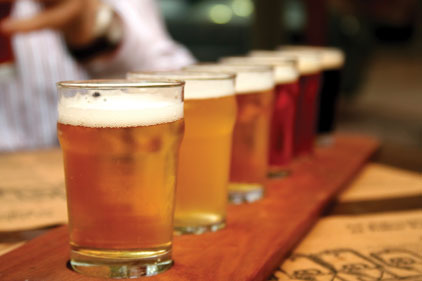The national recovery charity, which wants to achieve a society free from problem alcohol and drug use, is calling for a change in licensing laws as a result of its findings.
Research suggests that children are most influenced about drinking between the ages of 6 and 10 (Swanswell literature review).
Children benefit from seeing a range of responsible drinking behavior, so they can make informed decisions when they are older. It should include social occasions where alcohol is not present at all, Swansell states.
Swanswell told the APPG that having a licensed bar for parents at child-centred events -- those which adults would not be at if children were not there -- is sending the wrong message to the next generation about alcohol use, because children learn to expect alcohol at every social occasion.
This influence could cause them to want alcohol as part of their social events in adolescence and young adulthood.
Following a search of public records and Freedom of Information requests, Swanswell found at least 8,402 occasions where alcohol was sold at primary school events meant for children in 2012/13 alone (out of 312 local authorities contacted, 71 were unable to supply information).
The events were licensed by local authorities issuing Temporary Event Notices (TENs), allowing the sale of alcohol in unlicensed premises.
Only a handful of the alcohol TENs sent in by primary schools (23 out of a total of 8,425 notices disclosed under the FoI request) were rejected, because of problems with forms or that they were late, rather than because a particular concern had been raised.
The national recovery charity wants local authorities to automatically reject TENs that request alcohol sales at events aimed at children, unless there ispecific evidence to suggest otherwise.
In addition, Swanswell wants to encourage head teachers to sign up to a pledge not to sell alcohol at events aimed at children, so they can experience social events without the need for alcohol to be present.
Debbie Bannigan, Swanswell’s chief executive, added, "I’ve been interested in this subject since my own children received an invitation to a disco at their primary school, offering a licensed bar.
"The head teacher believed it to be perfectly acceptable, having risk-assessed it from a health and safety point of view, rather than considering the school’s influence on the children at a very impressionable age.
"Our research indicates that many head teachers may be making similar decisions. We can only assume they are unaware that when kids see grown-ups drinking at primary school discos, they will expect to drink themselves once they are into high school.
"If primary school children are led to believe that alcohol is an important part of every social occasion, we shouldn’t be surprised that they then expect to drink at their own social occasions as soon as they’re independent enough to do so.
"We need to take a step back and think about how we can help children shape their opinions about drinking, so they can make informed decisions about their relationship with alcohol when they’re older, and our campaign aims to play a part in that.’
Tracey Crouch MP (Chatham and Aylesford), who chairs the APPG on Alcohol Misuse, said, "So often we forget the effects of our actions on the perception of children.
"Granting alcohol licences at child-focused events taking place in primary schools suggests to children, at an extremely impressionable age, that alcohol is needed to have fun.
"Alcohol is so visible elsewhere that I don’t think it needs to be on school premises as well, and I would very much support a change in licensing to a presumption not to licence."
